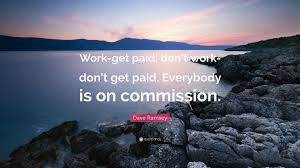This idea was inspired by Dave Ramsey’s Financial Peace Junior materials, and his reinforcement of the idea on various calls to his radio show. I liked the idea so much, I decided to share it with you!

Many parents today are so focused on what their kids want that they lose sight of what their kids really need. And what kids need more than stuff—what will benefit them most over the course of their lives—is to understand the value and satisfaction of hard work. Teaching a child to work is not for our benefit as their parents. We teach kids to work because it gives them dignity in a job well done and the tools and character to win as adults. They might complain now, but someday, they’ll thank you. And here’s the best part: Hard work is an antidote to entitlement—and the key to learning the value of a dollar.
The worst thing…
The worst thing a parent can do is to become a human ATM, handing out cash whenever the child wants to buy something. What parent likes that, anyway? But that’s kind of the idea behind a traditional allowance. You give your kids money whether or not they’ve earned it. Even the word “allowance” implies a child is entitled to a certain amount of money just for living and breathing. Hey, we’re not saying you should be a Scrooge. An occasional surprise or gift is fine. Every parent likes to gift their child that way! But making an allowance a general rule doesn’t teach them anything except Mom and Dad will buy them everything they want without them having to lift a finger. That’s fine when they’re 2. It’s not so fine when they’re 32. And what they learn as kids will stick with them into adulthood.
A commission system
There’s a way to teach kids that money comes from work, and you can start when they’re as young as 3 or 4 years old. Want to know what it is? It’s the commission system, and it’s actually really easy to do! Once your children are old enough to do basic chores, they’re old enough to earn a little money doing them. If they work, they get paid. And if they don’t work, they don’t get paid. If they can understand that money comes from work at age 4, then they’ll be ready to hit the real world running at age 24. Keep in mind that commission chores should be separate from family chores—those things your kids should do just because they are a part of the family. First, keep the jobs and the pay age-appropriate. For example, pay your 3-year-old a quarter if they put away their toys or 50 cents if they make their bed. Don’t worry about quality at this point. Just make a big deal about completing the job, do a little cheer, and pay immediately. Then they’ll make the connection between working and getting paid. Young kids will jump on board with new things quicker than you may realize. Try this and see if they don’t love it! On the other hand, let’s say you have a 10-year-old. Give them more responsibility and independence to succeed or fail. Assign a list of chores they need to complete throughout the week, like feeding the dog, washing the dishes, or taking out the trash. At the end of the week, add up how much they earned based just on the jobs they actually completed, and pay out that.
Plus +
I like this idea and do not really remember paying my kids an allowance as they were growing up. I do remember paying them for certain chores or tasks completed. Unfortunately, I was not consistent about doing this… but I must have done it often enough to get the message across as all of them are now grown and employed, full time. I think it makes a huge difference if they see mom and, or dad modeling a good work ethic- going to work almost every day. Plus, if your parents were employed and perhaps your children got to hear stories of how Grandpa or Grandpa worked at Acme Widgets Company for 40 years and they are still alive collecting their retirement, that will be a bonus lesson.
Your kids could also have the opportunity to earn bonuses, or commissions, based on the completion of a variety of advanced chores and special projects. This is not unlike most sales positions that offer a base salary plus commissions, with the base salary represented by the kids’ regular allowance. Initially, they will be paid each week on Saturday (chore day) because I want the reward of receiving payment to happen soon after the bulk of the work is performed. As they get older, we will likely increase this to a biweekly payment plan, and then possibly monthly, as they improve their budgeting skills.
Please also, use the comment section below to share with us (and other readers) how you used this idea or a variation of it to teach your kids that work is a good thing and money earned is your reward for doing the jobs assigned to you!

